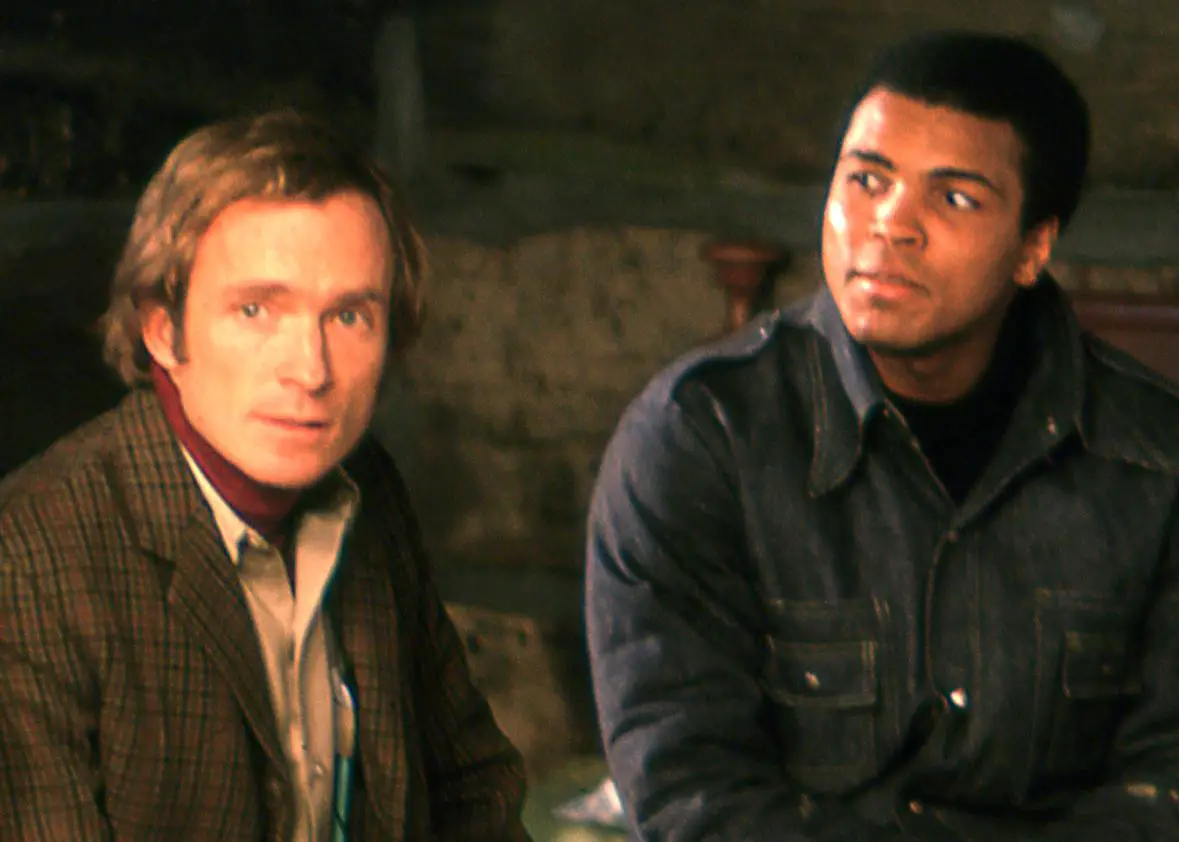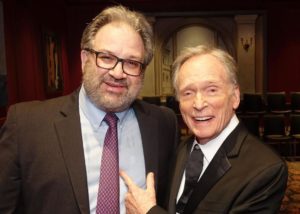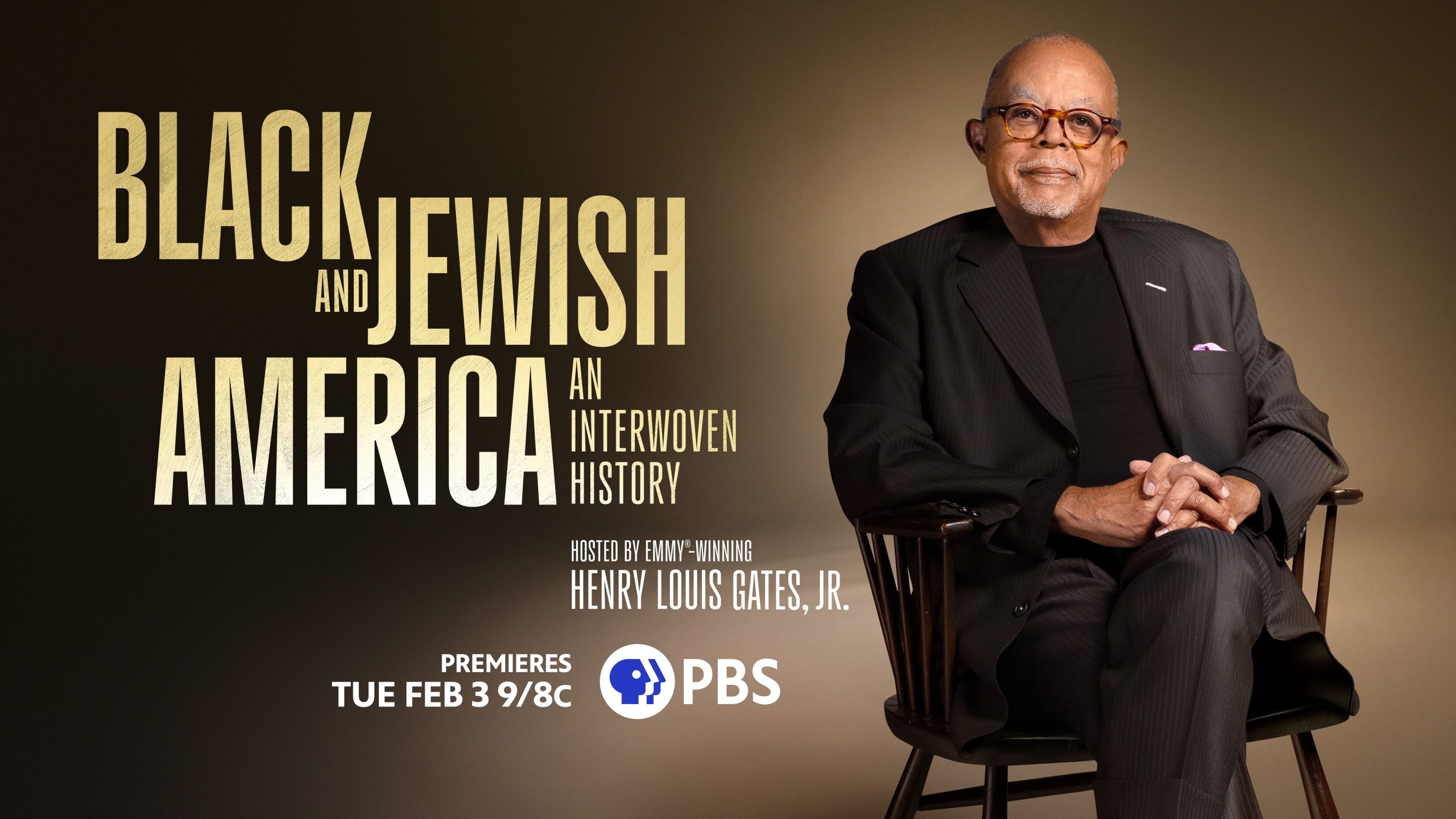
Dick Cavett and Robert S. Bader sat down with Solzy at the Movies during the 2018 SXSW Film Festival to discuss Ali & Cavett: The Tale of the Tapes.
Almost two years after the film first held its world premiere during SXSW, audiences will be able to watch these two greats go at it against each other. The film is available to watch on HBO this evening and will later be available to watch on demand.

Thank you for joining us today. How are things treating you?
Dick Cavett: Rottenly really, there was no soap in the men’s room. Other than that, it was great except for the salad.
Robert S. Bader: Austin is lovely and fun.
Dick Cavett: Now, if we were on the air, I would tell you how beautifully I’ve been treated.
Robert S. Bader: But why lie?
Dick Cavett: You think I was (inaudible) or something.
Like the greatest champion of all time, I’m also from Louisville, Ky.
Dick Cavett: You’re from Louisville?
Born and raised!
Dick Cavett: What an honor, really.
Robert S. Bader: We went there for Ali’s memorial.
I was watching it on TV because I couldn’t go home and just seeing the photos the next day—I had chills!
Robert S. Bader: We’re in a couple of with them. We’re the two straight white faces in the VIP section.
When I saw the SXSW lineup announced, I knew that I had to see Ali & Cavett: The Tale of The Tapes.
Robert S. Bader: Thanks.
Dick Cavett: Have you seen it?
Yeah. When did you start working on the film?
Dick Cavett: He started working on it first.
Robert S. Bader: Well, it starts in 2012 when Dick was writing for The New York Times column that he did, he wrote two pieces about his relationship with Ali. I managed the archive of the Cavett Show and I thought, Boy, this would make a good documentary, because we have all these great shows with Ali. I actually got down to work on it in 2015. It took a while—it took a few years to make it. But the biggest challenge was making it a manageable length because we have so much incredible material with Cavett and Ali.
I can imagine.
Robert S. Bader: A lot of time in actually editing more than anything else. Shooting stuff was a little easier—it was just too much stuff.
Dick Cavett: Usually happens that you have about half as much as you need. You have to throw a lot of stuff in to feel it out.
Robert S. Bader: I could say something interesting that you may find useful or not. The interviews were all conducted before Ali had passed away. I will say something that really fascinated me because when Ali died, I had to go back and do some re-cutting. Everybody spoke about Ali as though he were already gone because for many people, he apparently was. He was not able to speak and be in the public eye anymore. It’s like a slow fade out on the guy instead of just we lost him because he died. We lost Ali slowly. The interviews were so touching when people talked about him because he was for the media purposes or public consumption, he might as well have already been dead. When I went back and tweaked the film a little bit when that happened, very little was required, which was surprising to me.
I almost had a chance to meet Ali on Election Eve 2014. President Clinton was making a campaign stop for one of the candidates running for Senate. At the last minute, he canceled.
Robert S. Bader: He was not in good shape by 2014. I mean, Dick can tell you the story about when he saw him in 2012. That’s the story with the Mailer event.
Dick Cavett: Oh, yes.
Robert S. Bader: That’s probably the last time you were with him, I guess.
Dick Cavett: Yeah, that’s the sad part. There was one of those big ballroom hotel events in New York. It was Norman Mailer and it had to do with writers and promoting writers and so forth. They got Ali to come there. Everybody was now in the ballroom and he hadn’t arrived. I didn’t know what they were going to do with him. They had constructed kind of a room with curtains, risen up high. Draw curtains in front. They introduced Ali after several events at the microphone. The curtains parted and there was this G-d, sitting there in a throne. Dark glasses and virtually unable to move a muscle. He couldn’t speak. There was some voiceover tribute to him and they closed the curtains again.
I got to see him backstage. His sister was there, I think and a couple other people. They were letting people sit next to him and have their picture taken. He stared straight ahead for everything, not moving any part of himself. When it was my turn, I thought this is will be the first time I don’t hear “Hey, Dick” Or “Dick Cavett came a long way to see me. I can’t believe it.” Nothing like that. It was just this statue. I said my name a few times and improvised sentences to him. I guess maybe I’d like to think and it may be true that he stirred with some recognition at one point. Very small. A very good actor would just indicate it for a moment and that was very sad. Later, he was at a table and turning the pages of a leaflet about the evening so he was able to move and walk very slowly. And I thought this ain’t Ali anymore.
Robert S. Bader: As a person who didn’t know Ali, I can tell you that reviewing the footage to put the film together, it’s noticeable if you look at Ali say in 1970 and you look at him in 1979. You notice the slurred speech. He’s not as quick on his feet. You could see the damage is beginning even then. He comes back and fights after that. In that 1979 interview, which is the last one on the Dick Cavett Show, he’s retired when he films that show. He comes back and he has a couple more fights of that, stunningly.
Dick Cavett: Why didn’t anybody stop him?
Robert S. Bader: There’s a show where you actually say to him, “You’re here to tell us tonight that you’re not going to fight anymore.” He makes the standard joke about how other interviewers are paid to be an idiot. It’s heartbreaking to know that at that point, he went back and fought much younger, stronger champions. He should never been allowed to fight Larry Holmes. That’s just my humble opinion in that but he felt he needed to do that. I think he was so strong in other areas that he could have been anything he wanted to be and didn’t have to fight anymore. As you can see, Dick is caring for the guy and is his friend. Angelo Dundee comes on the show and says, “No, you shouldn’t fight anymore. He’s got nothing left to prove.” His friends, people who really cared about them, were telling him but the people who are making a living off of him fighting didn’t want him to retire.
Dick Cavett: Ferdie Pacheco, probably.
Robert S. Bader: Yeah, Ferdie Pacheco stopped being his doctor at a certain point because he didn’t want to see him fight anymore.
Dick Cavett: Fight fans know these names.
https://www.youtube.com/watch?v=QEhNDUwksvU
In watching the film before SXSW, the moment that hit me the hardest was seeing the footage of Ali holding the Olympic Torch at the 1996 games. I stayed up late over 20 years ago during the Opening Ceremony and it was just as emotional to watch again this year. Was this a hard moment to watch during the editing process?
Robert S. Bader: What was hard for me was during the interviews when people spoke about it, everybody choked up. In particular, a guy who really comes across very well in the film is Juan Williams. Juan Williams got very emotional talking about what that meant to him and what that meant to the world. When Dick talked about it, you got a little choked up just about the sight of him there. People who are close to him had to feel differently about him than just fans. They just knew more about what was happening inside. In 1996, I never dreamed I would make this film. I remember watching that and think my G-d, what’s happened to Ali. It’s just so tragic.
Dick Cavett: I remember I went to British Virgin Island. Ali was at another island. I called him and just for fun, I said, “Would you come over here to my island? You should see it.” Virgin Gorda. He came and that place has never been the same since. It was 99% black population. I remember at one point, we were moving around the island in a car. Then there were two cars and then there were five cars—a long train just to see Ali moving around. There was a young kid standing beside the road. Ali leaned down and put his face about an inch from his kid. The child nearly expired on the spot. I thought maybe he’s too young to know Ali but he did. I don’t know how old he was. “Hey, this is paradise.” He said about the island.
We went into the dining hall for lunch. By the way, it’s been obliterated by the storm. That part of Little Dix Bay, Virgin Gorda. We went there for lunch when it was still intact, of course. If you came in and saw a meeting at one of the tables in the dining room, there were probably six tourists. All white folks were standing there. Then 12 and then 28 and then 50. We’re bringing the people unashamedly just standing there worshiping the great G-d, Ali. When he left, he got into a little tiny plane that had brought him over. There was this big, brutish looking guy who seemed to have one sharpened tooth, and really a scary face and afro. The kind you use in a quick shot in a movie. He was watching the plane and going, “Ali, Ali.” I tear up when I imitate him. I never forget his hands. Good heavens. What if he had never existed?
Robert S. Bader: I think when people reacted to him like that he was good. You heard about it. I think he’s the true example of a guy didn’t let it go to his head. He knew what he was. He knew what he meant to people. I think that comes across when he’s on television, not just the Cavett Show, but just in general. For all of the bluster at the core of it, he’s a pretty humble guy. I think he knew what he meant to people and he didn’t let it get out of control. He kind of made himself very human in these settings. I think horsing around with Cavett was a good thing for him to do because it did sort of burnish that image of him as just a regular guy, too, because he wanted to be just a regular guy. You could tell he didn’t love being the super famous Muhammad Ali but it was part of the job for him.
Dick Cavett: I taught him a couple of magic tricks. He actually had a magic trainer. He took up magic. He carried this red silk handkerchief and pushed it into his hand and then it was gone. He must have done it 1000 times. Any time anyone would look—waiting for an elevator, anywhere and he vanishes a handkerchief. It was cute in a way
I never saw him angry. I don’t know who or what would it would take to make him be demonstrably angry. There are so many great figures or schmucks that it wouldn’t surprise me. He certainly had every right to and I’m sure he was angry at things but he never let go like that. He had fabulous control of his humor and his timing. His delivery was as good as anyone in show business. He was gifted with being a born showman. He could have done that for a living.
Robert S. Bader: I think one of the touching aspects of your relationship with him is you were one of the friends that wanted him to stop fighting.
Dick Cavett: Yeah. Oh G-d, yes.
Robert S. Bader: I don’t think he saw that he could have just been coming on talk shows and being funny and being who he was without having a fight to promote, which I think is one of the great sadnesses of it.
Dick Cavett: He came on when his jaw was broken. It was all puffed up. He was so down or playing so down. I’ll never know for sure that he could really play it. This was the time, I said, “You don’t seem so happy.” He said, “Dick, I’m happy with you. You are the onliest one to have me on. Old broke down fighter, broken jaw, wired up. You are the onliest one. You my main man.” I didn’t know that was the compliment you could get. People yelled at me “Ali’s main man, hey!”
Robert S. Bader: I will point this one fun thing out. I tried to pare it down. There were some great clips that didn’t really make it in the film and I threw them into the credits. There’s some real funny stuff. There’s a thing where Ali is talking about Dick being as main and he goes, “Yeah, now you can walk through Harlem, I’ll help you out!”
Dick Cavett: What a guy.
He’ll be missed incredibly.
Robert S. Bader: I hope this is a chance for people to see a different side of him—a very different look at him, really. The same story but from a different angle, I think. It’s Ali’s story.
Dick Cavett: You know what I don’t know—was he afflicted not only with Parkinson’s but punch drunk?
Robert S. Bader: Probably not so much if it all at the end. I’m not medically able to answer that. The funny thing about Ali’s career is when he got the title taken away, he was 29-0. I think he had taken like a total of six punches in those 29 fights. Nobody could hit the guy. When he came back after four years off, he was a different fighter and he was suddenly taken punches. People who know a lot about boxing like Larry Merchant and Michael Marley, the sports writers in the film. Thomas Hauser, his biographer said when he was training after the exile, he had to learn to take a punch because he was not as fast as he was. In the early career, nobody ever hit him. He was not getting damaged.
Dick Cavett: It was fun to fight.
Robert S. Bader: Boxing was easy for Muhammad Ali in the beginning. It was after he came back where he was a little older, a little slower, and the young guys like Shavers and Norton were coming up, suddenly it got a little harder.
Dick Cavett: Who were the bastards who took his title away?
Robert S. Bader: It was a whole bunch of people. It was the United States government and the New York State Athletic Commission. Yeah, it was confusing. There wasn’t one single organization that could say you’re not the champion anymore and you can’t fight. When he came back, nothing special had happened, the state of Georgia granted a license for an Ali fight. That’s all that really happened. Tom Hauser is pretty knowledgeable on this subject and he’s written these two great books about Ali. Basically what happened was, there was a lot of pressure mounting because people wanted to see him fight. The boxing business was going in the tank. There was no big money fighter out there. Ali even says it one of the clips in the film because they’re offering this guy a million dollars to fight this guy. They’re offering $6 million to fight me.. He was the draw!
Dick Cavett: But don’t people say that his skill was elevating and that we will never know what he would have been in those four years?
Robert S. Bader: I think a lot of the boxing people say that his he was at his best in the few fights right before they took his title away. There are fights like Cleveland Williams and Zora Folley, who pretty much are forgotten fighters now but they were pretty much top contenders in the late 60s. Those fights—Ali didn’t get touched. They say he was at his absolute best. When he came back, he beat Quarry in that first flight but Quarry was a journeyman fighter. He was a good fighter but it shouldn’t have been close. If he fought the Ali of 1967, it would have been a one round fight.
Thanks again for your time and congrats again on the film.
Robert S. Bader: Thank you. Thank you for doing this.
Dick Cavett: You want to hear what Bob Hope said about the Liston fight?
Sure.
Dick Cavett: He said I got there a little late and Liston sat down before I did.






